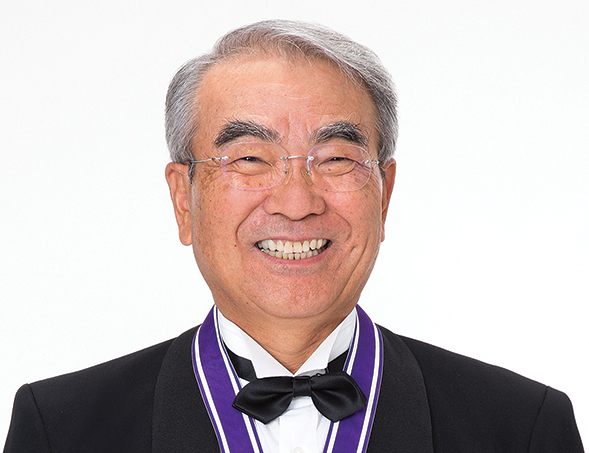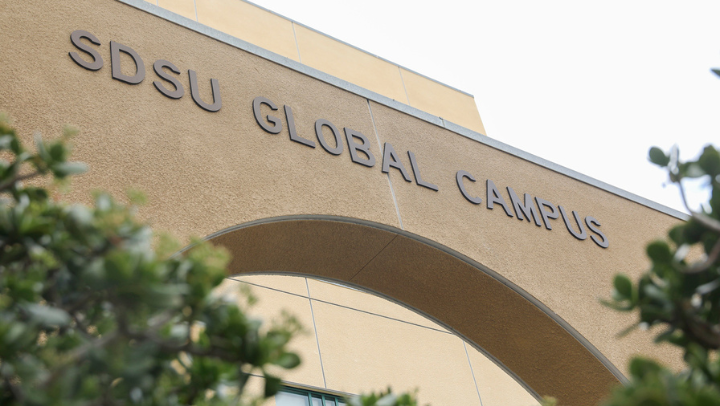SDSU Hosts Kyoto Prize Winner
Takeo Kanade hopes to inspire aspiring scientists to think like an amateur, but do as an expert.

Kanade has made fundamental contributions to basic theories of computer vision and has introduced a series of innovative applied technologies. He currently conducts research in the areas of computer vision, facial recognition, virtual reality and medical robotics.
Kanade’s lecture is entitled on "Fun Research in Computer Vision and Robotics: Think like an Amateur, Do as an Expert."
The event is scheduled from 2 to 3:30 p.m. on Wednesday, March 15, in Montezuma Hall of the Conrad Prebys Aztec Students Union. It is free and open to the public, but registration is requested.
Celebrating a pioneer
Kanade’s 1973 Ph.D. thesis was one of the earliest writings on facial recognition technology. He also led the NAVLAB Autonomous Driving Project, which developed many of the components for vision-based autonomous driving still used today. Kanade said one of his most cherished accomplishments is his work on the EyeVision system."This system demonstrated how the combination of many cameras, robotics and computer vision technology can create a new visual media which ordinary people can see, experience and enjoy,” he said.
Kanade is currently a professor of computer science at Carnegie Mellon University and also oversees the university’s Robotics Institute.
“Dr. Kanade is an internationally acclaimed researcher and it is an honor to welcome him to San Diego State University,” said Stephen Welter, SDSU’s vice president for research and dean of graduate affairs. “His groundbreaking discoveries in the field of robotics and computer vision have made possible many of today’s fundamental and practical advancements in the field.”
The next generation
SDSU is part of a consortium recently funded by the US. Department of Transportation and tasked with researching how driverless and semi-automatic cars, ride-sharing and connected vehicles will impact driver and pedestrian safety.Additionally, management information systems professor Aaron Elkins is developing a robotic kiosk to help border security agents determine the truthfulness of travelers’ responses to questions posed at U.S. entry points.
And engineer Kaveh Akbari Hamed is working with robots to help powered prosthetic limbs walk more efficiently.
SDSU has arranged for high school students—many from underserved areas of the region—to attend Kanade’s lecture with the goal of introducing them to the university and the idea of pursuing a careers in STEM (science, technology, engineering and mathematics) fields.
Other Kyoto Prize Symposium events
Kanade’s presentation is one of the three-part Kyoto Prize Symposium hosted jointly by SDSU; University of California, San Diego; University of San Diego; and Point Loma Nazarene. In addition to Kanade, this year’s Kyoto Prize laureates include:- In Basic Sciences, medical scientist Tasuku Honjo, who has identified several important molecules that regulate the immune system. His findings have led to the development of effective cancer immunotherapy. Honjo will speak at 10 a.m. on March 15 at UCSD.
- In Arts and Philosophy, Martha Craven Nussbaum, a world-renowned philosopher and champion of the Capabilities Approach, the effort to incorporate the concept of individual human capabilities into the criteria for social justice. Craven Nussbaum will present at 10:30 a.m. on March 16 at USD.



